December 2019 National eResearch Newsletter
Welcome to the December 2019 AeRO eResearch Newsletter
Message from the AeRO CEO
 |
Grab the Early Bird rate to eResearch NZ 2020 before 12-Jan
Before you leave for holidays, go register for eResearch NZ 2020 – New Zealand’s premier eResearch event – to secure your spot before the Early Bird rate closes on 12 January 2020. The preliminary programme is being posted online later today (Friday 13-Dec), following an excellent response to our submissions call under the theme “United in Data”. Connect with the trans-Tasman eResearch communities on 12-14 February 2020 in Dunedin, NZ!
More information at: https://www.eresearchnz2020.org.nz/. |
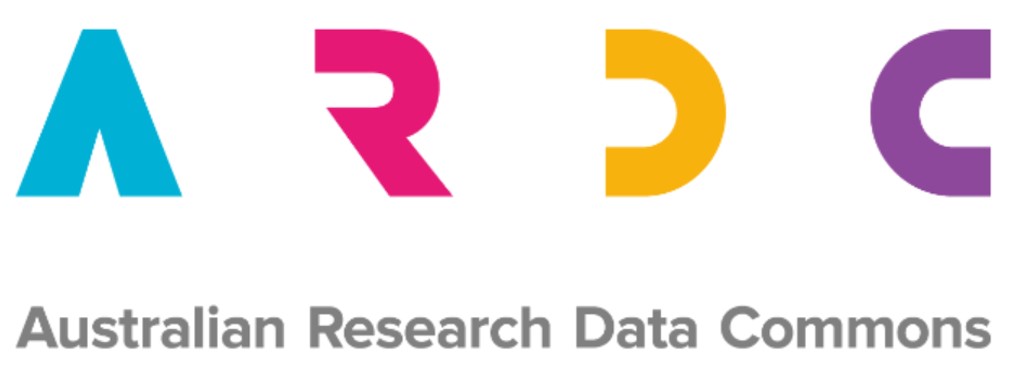 |
Health Studies Data Asset Program EoI closes 28-Jan
The ARDC is seeking expressions of interest from participants, contributors / editors, and data development project management organisations for the initial data development phase of the Health Studies Data Asset Program. EoI closes 28 January 2020.
|
 |
Supercomputing Frontiers 2020: Call for Papers by 31-Jan
Supercomputing Frontiers Europe 2020 will be held in Warsaw, Poland for its sixth annual conference on March 23-26, 2020. The main topics of this conference will be: computational science and supercomputing applications in all domains of science and technology, quantum computing; AI & HPC; studies of microbiome and connectome; optical computing; networking and interconnects; neuromorphic computing; big data; use of intense computing in new research contexts, eg social studies, humanities, archaeology.
The organising committee are now calling for papers for the conference. Conference website: http://supercomputingfrontiers.eu. Submission link: https://easychair.org/conferences/?conf=scfe2020. Abstract registration deadline: December 31, 2019. Submission deadline: January 31, 2020. |
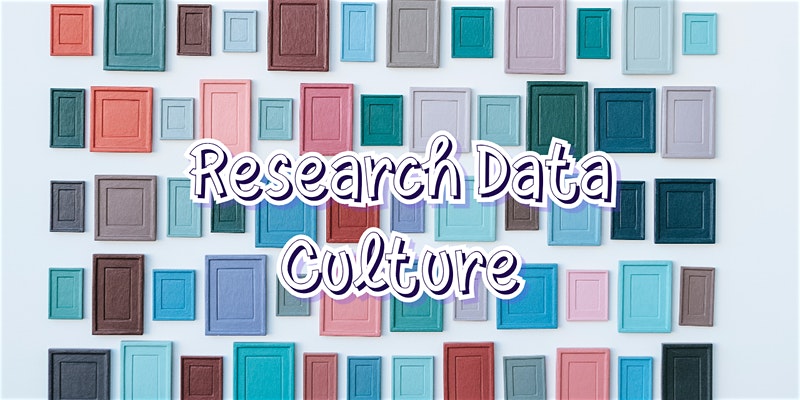 |
Research Data Culture for Early PhD students: Brisbane 7-Feb
A Forum for Research Higher Degree Students has been organised on Research Data Culture Pathways by the Characterisation Virtual Laboratory.
Friday, 7 February 2020, 9:00 am – 4:00 pm AEST.
More information and registration at: https://www.eventbrite.com.au/e/research-data-culture-pathways-forum-for-research-higher-degree-students-tickets-84842717853. |
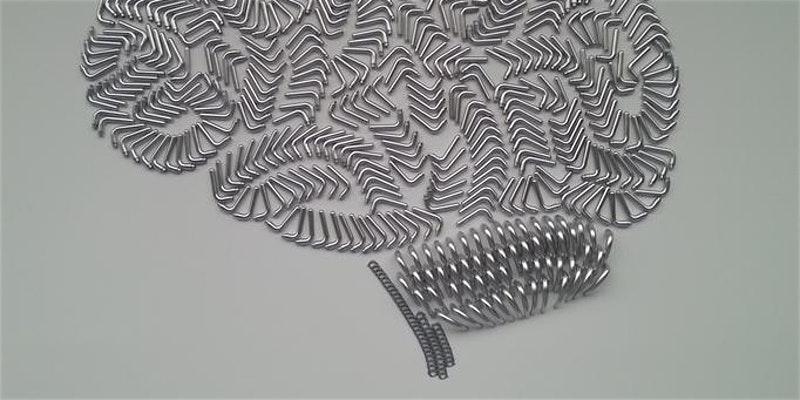 |
Workshop on Automating Neurosciences Workflows: Sydney 10-Feb
A workshop on Automating neuroimaging analysis workflows with Nipype, Arcana and Banana has been arranged by the Characterisation Virtual Laboratory.
Monday, 10 February 2020, 9:00 am – 5:00 pm AEDT. Location: TBA (Camperdown, NSW).
More information and registration at: https://www.eventbrite.com.au/e/automating-neuroimaging-analysis-workflows-with-nipype-arcana-and-banana-registration-85457153647. |
 |
New Zealand to Host Inaugural Carpentries Connect Event: 11-Feb
Anyone involved with teaching or learning digital skills in research is invited to attend New Zealand’s first Carpentry Connect event on February 11, 2020, hosted by the University of Otago and New Zealand eScience Infrastructure (NeSI). Free to attend, Carpentry Connect is a satellite event of eResearch NZ 2020 (12-14 February), and is a chance for instructors, helpers, and learners to build community and learn from each other’s successes and challenges.
More information at: https://www.nesi.org.nz/event/2020/02/carpentry-connect-nz-2020-coming-dunedin-free-event/. |
 |
Pawsey After Hours: Making Data Accessible to Students: 26-Feb
Join us at Pawsey on 26 February 2020 for an interesting and interactive discussion with Rob Hollow – a leading outreach educator in astronomy – known for his innovative teaching practices (think PULSE@Parkes). This event is aimed at all teachers, in particular Secondary Science teachers. Feed your creativity (and your stomach!) while exploring ways to engage your students with real-world data.
Also browse the many real-world, data-driven case studies – in astronomy, food supply, life sciences, medicine, and more – showcased at the Pawsey Supercomputing Centre.
Register your attendance at: https://pawsey.org.au/event/pawsey-after-hours-making-data-accessible-to-students/. |
 |
Towards FAIR Principles for Research Software
A position paper about FAIR, research software, software sustainability and reproducible research has recently been published, with contributions from the Australian National Imaging Facility, as well as many others worldwide.
|
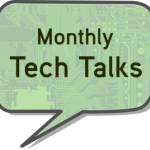 |
TechTalks Pause and Review
Since June 2016, there have been about 34 TechTalk events with over 2,000 participants in total!
It is timely that we review this forum and consider whether it is still valuable in engaging the software and technical communities in general, and supporting ARDC’S evolving programme of work, eg data services, software and platforms.
We would value your feedback until the end of January 2020 as to whether the TechTalks are still meeting your needs. Please leave your feedback in the Comments section on this page: https://www.meetup.com/monthlytechtalk/events/266818140/.
Details of past Tech Talks can be seen at https://www.meetup.com/monthlytechtalk/. |
 |
Pawsey Awarded for Best Use of HPC in Physical Sciences
The Pawsey Supercomputing Centre has been recognised in the annual HPCwire Readers’ and Editors’ Choice Awards, for the Best Use of HPC in Physical Sciences for a project undertaken with Professor Brett Harris at Curtin University to map and model Perth’s aquifers. See https://pawsey.org.au/case_studies/protecting-perths-aquifers/.
Modelling these aquifers generates vast amount of data, which requires near-real-time processing to test new ideas and accurately build 3D models as quickly as possible, in order to predict how the aquifer will behave over 50 or 100 years under different management strategies.
Further information can be found on the Pawsey website at: https://pawsey.org.au/hpcwireaward-2019-physicalscience/. |
 |
Pawsey Capital Refresh Update Page
The Pawsey upgrade, as a major part of the national HPC infrastructure, is ensuring Australia continues to enable computationally intense research.
Pawsey capital refresh is a complex upgrade, and will be a staged process. Some ancillary systems, including storage and network infrastructure, have been procured prior to the main system.
In an endeavour to keep stakeholders up to date with the complex $70 million capital refresh project, a page has been created with latest updates, podcasts and infographics on the project. Visit the capital refresh update page here: https://pawsey.org.au/about-us/capital-refresh/. |
 |
WHPC Summit: Call for Submissions
Building on Pawsey’s success as an internationally recognised organization that is actively addressing gender inclusion in the HPC/AI/Big Data workforce worldwide, the WHPC Summit is designed to celebrate the contributions, careers and leadership of women in High Performance Computing. It will be held in Vancouver, British Colombia, on 29 April – 1 May 2020.
The committee is now calling for submissions over a range of technical, diversity, inclusion and leadership topics.
Check out the site and put in a submission now at: https://womeninhpc.org/events/summit-2020#!/submissions. |
 |
Agricultural Research Federation (AgReFed)
Researchers at Federation University, together with collaborators at CSIRO Environmental Informatics, have now enacted the new Agricultural Research Federation (AgReFed). The AgReFed is a cooperative of Data Provider Communities with the shared vision “To enable FAIR agricultural data to accelerate innovation in and increase profitability and sustainability of Australian agriculture”.
Founding data provider communities contributing to this establishment phase include UNE Smartfarms, CSIRO National soil data and information, ARC Centre of Excellence in Plant Biology (University of Western Australia and Department of Primary Industries and Regional Development), the University of Adelaide Waite Research Institute and Australian Plant Phenomics Facility and Federation University.
Membership is open to providers and users of agricultural data. See www.agrefed.org.au. |
 |
C3DIS 2020 in Melbourne: 16-20 Mar
C3DIS Collaborative Conference on Computational and Data Intensive Science 2020 (C3DIS 2020), will be held the week of 16-20 March in Melbourne.
The call for presentations and posters has now closed, but more information is available at at http://www.c3dis.com/.
This event will be co-located with the Research Data Alliance (RDA) 15th Plenary. https://www.rd-alliance.org/plenaries/rda-15th-plenary-meeting-australia. |
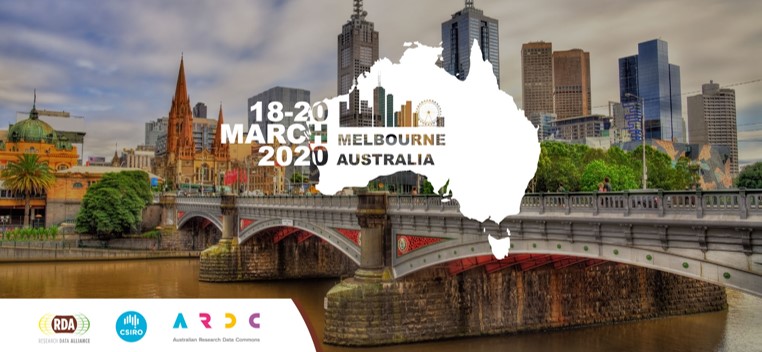 |
Research Data Alliance Plenary in Melbourne: 18-20 Mar
The Research Data Alliance (RDA), with 9,300+ members globally, from 137+ countries, is coming to Australia. It will be co-located with C3DIS (see http://www.c3dis.com/).
The call for Sessions and BoFs for the RDA Plenary 15 in Melbourne, 18-20 March 2020, has now closed, but more information can be seen at https://www.rd-alliance.org/plenaries/rda-15th-plenary-meeting-australia. |
 |
New Zealand to Host international Cray User Group (CUG) 2020 Meeting: 3-May
New Zealand eScience Infrastructure and the National Institute of Water and Atmospheric Research (NIWA) will be hosting the 2020 Cray User Group (CUG) meeting in Auckland from Sunday 3 May 3 to Thursday 7 May 2020. As annual events, CUG meetings gather staff and users of select Cray and HPE systems worldwide for presentations by HPC experts, as well as valuable technical sessions, tutorials, and demonstrations.
More information at: https://www.nesi.org.nz/news/2019/12/nesi-and-niwa-partnering-host-cray-user-group-2020-meeting. |
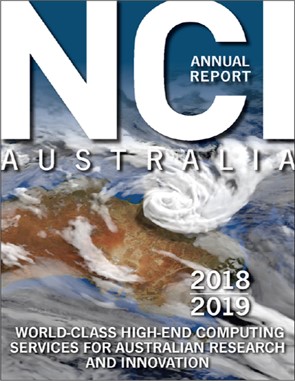 |
NCI Annual Report Available
The 2018-19 NCI Annual Report is now available. The Report showcases some of the most exciting computational and data-intensive science of the past 12 months. Scientific advancement in the areas of weather forecasting, materials design, environmental management, geophysical exploration and more relies on the powerful supercomputing and data services that NCI provides to the Australian research community.
Read the report here: http://bit.ly/NCI18-19AR. |
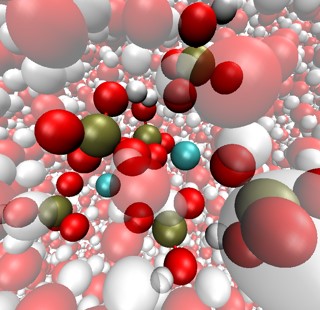 |
Discovering the Exquisite Details of Mineral Formation with the NCI Supercomputer
Understanding the complex processes that underpin our everyday life requires atomic scale supercomputer simulations. Dr Raffaella Demichelis from Curtin University works with colleagues to understand the formation of minerals relevant to life, such as those present in bones, shells, kidney stones, and more generally, in hard tissues.
Read about this research here: https://nci.org.au/research/research-highlights/discovering-exquisite-details-mineral-formation. |
 |
Australian BioCommons Training
The Australian BioCommons training program has completed its final workshop for 2019, with 120 people at 9 venues simultaneously joining Assoc Prof Michael Charleston for “Phylogenetic trees – back to basics”. The interactive two part workshop was broadcast from the University of Tasmania and included hands-on activities and opportunities to consult directly with bioinformatics experts. All of the resources are freely available for you to watch and follow along on the Australian BioCommons YouTube channel at http://www.youtube.com/c/AustralianBioCommons!
To hear about more bioinformatics training opportunities in 2020 and beyond, follow @AusBioCommons on twitter and subscribe to the Australian BioCommons newsletter at https://www.biocommons.org.au/subscribe. |
 |
Data Science Week 2020: Call for Events
Data Science Week is back for 2020 and is all about embracing the next decade – as we enter the roaring twenties, what does the future hold for humanity?
We are searching for events across Australia to celebrate data science. Join us in creating a national community of data scientists, technologists, visualisers, educators and more to raise awareness and understanding around data science, to shift perceptions around the science and increase uptake and understanding within the Australian community.
Focusing on the week’s theme, The Future, submit your event now: https://datascienceweek.org/#eoi. |
| eResearch Support Registry
A reminder that AeRO has a National eResearch Support Registry that lists all support communities, Hacky Hours and Digital Drop-in sessions.
Check out http://aero.edu.au/national-eresearch-support-registry/ to find support close to you, or email loretta@aero.edu.au to list your support service.
While you’re there, check out the eResearch Support Resources at http://aero.edu.au/national-eresearch-support-resources/ or consider becoming an eResearch Champion http://aero.edu.au/champions/. |
|
 |
eResearch Jobs
AeRO provides details of the latest eResearch job opportunities in the sector. Jobs are posted immediately to https://twitter.com/AeRO_eResearch, and the website at http://aero.edu.au/jobs/ is also updated. This is a free service for the whole eResearch community – to advertise a position, simply email loretta@aero.edu.au. Here’s a sample of current vacancies: Data Officer, NeSI Engagement Team and Agile Portfolio Leads, Research Fellow in Trusted Observational Data, Bioinformatician, Geospatial Server Administrator, Science and Technology Australia CEO. |
Contributions
This newsletter is based on contributions provided by members of the eResearch community, and draws on news articles and newsletters published across the sector. The Newsletter is published around the 16th of each month.
Please send any contributions (max. 100 words, plus a link and image) or pointers to any other relevant articles or newsletters to editor@aero.edu.au
Archives of these Newsletters are held at http://aero.edu.au/newsletters/.
Click HERE to add yourself to the eResearch Mailing List.
Thanks,
—AeRO Newsletter Editor


